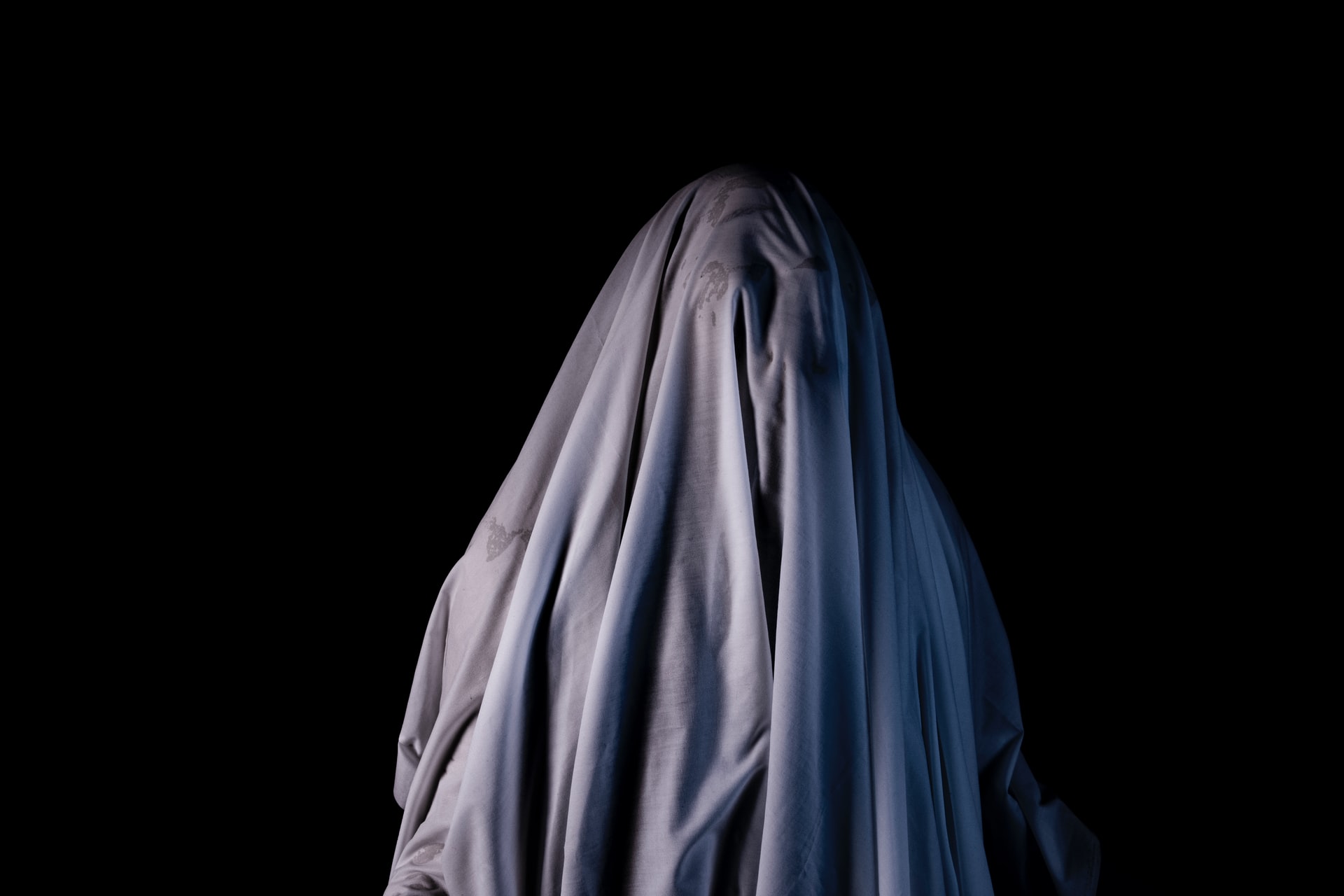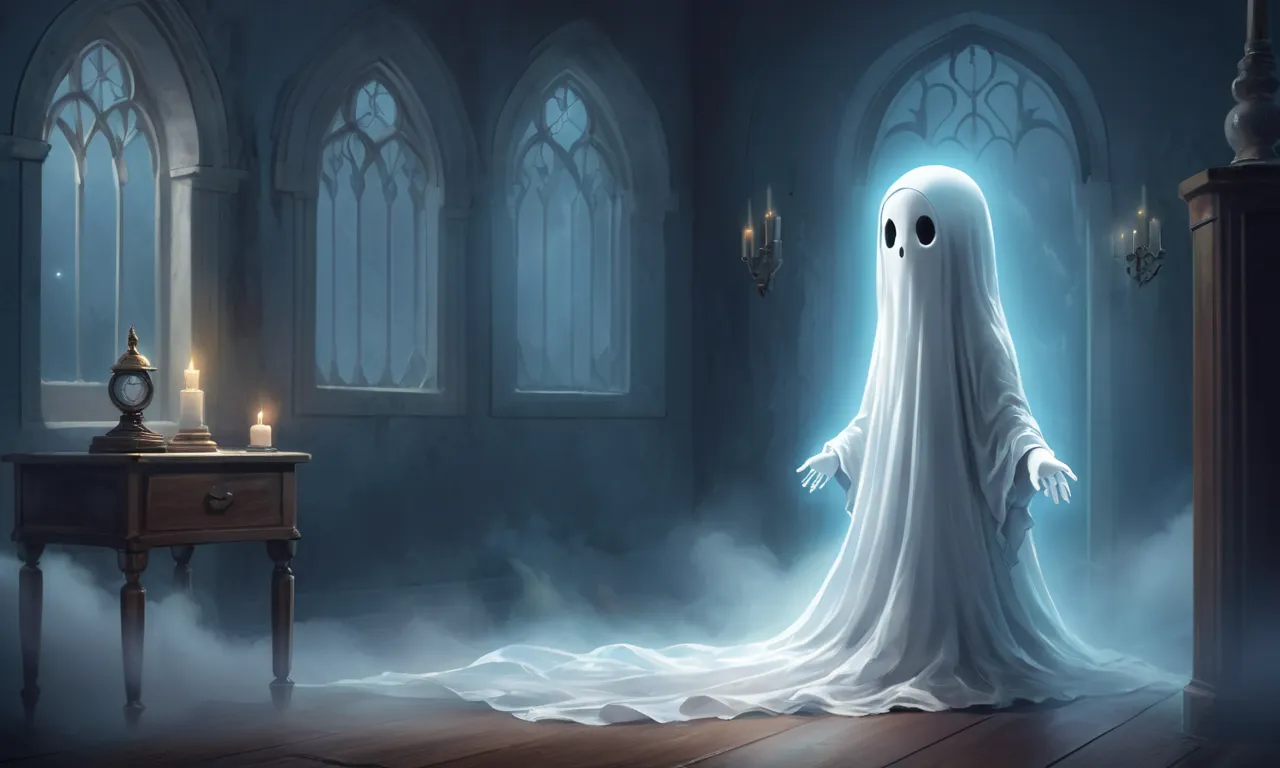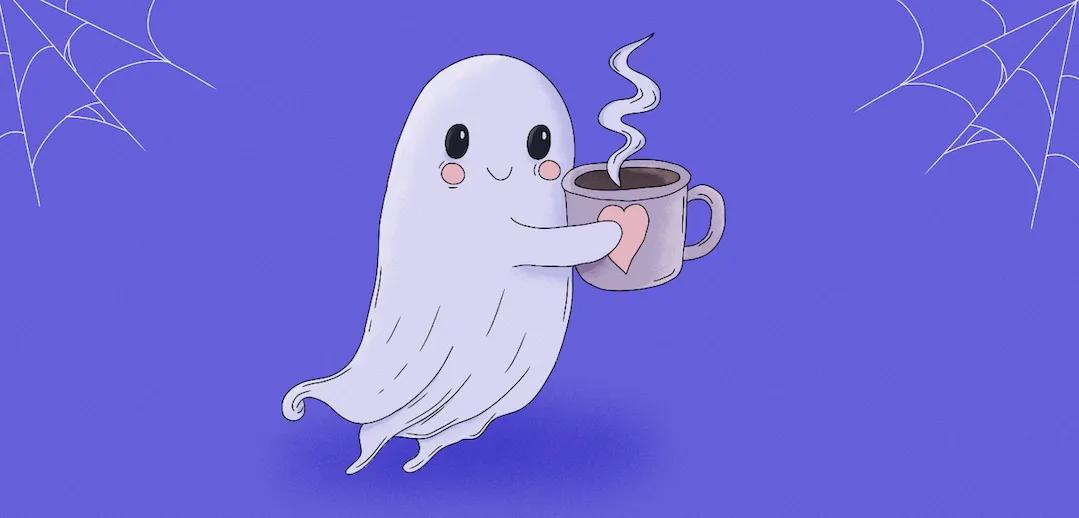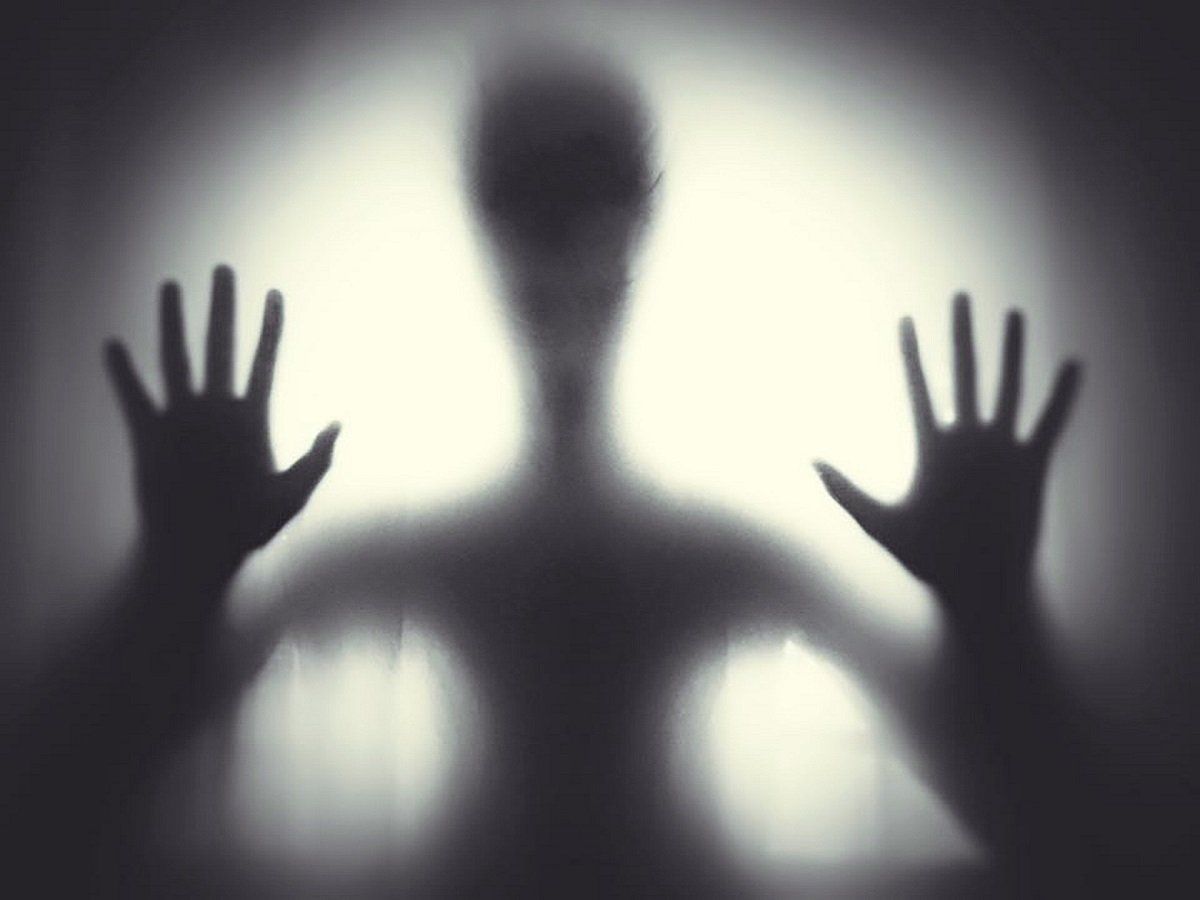The ghost dream meaning may signify unresolved emotions or fears in your subconscious mind. Dreams of ghosts often represent unaddressed issues or feelings of guilt, regret, or loss.
These dreams could be a reflection of past trauma or a fear of the unknown. Exploring the specific details and emotions within the dream can provide insight into the underlying concerns affecting your waking life. Understanding the symbolism and context of the ghost in your dream can offer valuable introspection and aid in addressing any lingering emotional distress.
Whether the ghost is a familiar figure or a mysterious presence, decoding the dream can help in processing and overcoming inner turmoil.
Spirits In Sleep: Interpreting Ghost Dreams
When it comes to dreams, encountering a ghost can be a perplexing and unsettling experience. The presence of spirits in sleep can evoke a range of emotions, from fear to curiosity. Interpreting these ghostly visions can provide valuable insights into our subconscious mind and cultural influences. Let’s delve into the intriguing world of ghost dreams and explore the various perspectives and meanings associated with them.
Cultural Perspectives On Ghosts In Dreams
In different cultures, the symbolism of encountering a ghost in dreams varies significantly. For instance, in some cultures, ghosts are considered as omens of impending doom or messages from the spiritual realm, while in others, they may represent ancestral guidance or unresolved issues. Understanding the cultural context can offer profound insights into the significance of ghost dreams.
Psychological Significance Of Dreaming About Ghosts
From a psychological standpoint, dreaming about ghosts can be indicative of unresolved trauma or suppressed emotions. It may symbolize the lingering presence of past experiences or relationships that continue to haunt the subconscious mind. Exploring the psychological underpinnings of ghost dreams can unveil underlying anxieties and emotional distress that require acknowledgment and resolution.
Common Themes In Ghost Dreams
Ghost dreams often share common themes, such as encountering deceased loved ones, unresolved emotions, or feelings of fear and uncertainty. These dreams can hold significant meaning, providing insight into our subconscious thoughts and emotions surrounding death and the afterlife. Explore the symbolism and interpretations behind ghost dreams to gain a deeper understanding of their significance in our lives.
Ghost dreams are a common occurrence and can often leave us feeling intrigued, confused, or even frightened. These dreams have been the subject of fascination for centuries, with various interpretations and meanings attributed to them. While the specific content of ghost dreams can vary greatly from person to person, there are some common themes that tend to emerge. In this article, we will explore two prevalent themes found in ghost dreams: encountering deceased loved ones and facing unresolved issues through apparitions.
Encountering Deceased Loved Ones
One of the most recurring themes in ghost dreams is the appearance of deceased loved ones. These dreams provide an opportunity for individuals to reconnect with those who have passed away. Seeing a deceased loved one in a dream can evoke a wide range of emotions, from joy and comfort to sadness and longing. Many people believe that these dreams serve as a way for the subconscious mind to process grief and find closure. They can also serve as a reminder of the lasting impact our loved ones have on our lives, even after they are no longer physically present.
Facing Unresolved Issues Through Apparitions
Another common theme in ghost dreams is the manifestation of apparitions representing unresolved issues. These dreams often present scenarios where the dreamer is confronted with someone or something from their past that they have not fully dealt with or resolved. It could be a past conflict, a missed opportunity, or an unfulfilled desire. The apparitions in these dreams act as a catalyst for introspection and self-reflection, urging the dreamer to confront and address these lingering issues. By facing these unresolved matters in the dream world, individuals may find a sense of closure and a path towards personal growth in their waking lives.
Types Of Ghost Dreams And Their Meanings
When it comes to ghost dreams, they can be both intriguing and unsettling. The symbolism and emotions associated with these dreams can vary widely, offering valuable insights into our subconscious minds. Understanding the different types of ghost dreams and their meanings can shed light on the messages they convey.
Benevolent Spirits: Messages Of Comfort
Benevolent spirits in ghost dreams often appear as deceased loved ones or friendly entities. These dreams typically evoke feelings of warmth and reassurance, signaling messages of comfort and guidance from the spiritual realm. Encounters with benevolent spirits in dreams may signify a longing for connection with departed loved ones or serve as a source of solace during challenging times.
Malevolent Entities: Manifestations Of Fear
Malevolent entities in ghost dreams are characterized by feelings of dread and unease. These dreams may involve encounters with menacing or threatening spirits, reflecting deep-seated fears and anxieties. Malevolent ghost dreams often serve as symbolic representations of unresolved emotional trauma or inner turmoil, urging the dreamer to confront and address their apprehensions.
Analyzing The Context Of Ghostly Encounters
Analyzing the context of ghostly encounters can shed light on the ghost dream meaning. By delving into the circumstances surrounding these encounters, we can gain a deeper understanding of the symbolism and messages behind these eerie dreams.
Analyzing the Context of Ghostly Encounters Ghost dreams can be unsettling, but they can also hold valuable information about our subconscious mind. When analyzing the context of ghostly encounters in dreams, it’s important to pay attention to the settings and symbols present, as well as the interactions with the ghosts and personal interpretation. Settings and Symbols in Ghost Dreams The settings and symbols in ghost dreams are often significant and can reveal important insights into our emotions and psyche. For example, a dream that takes place in a haunted house may represent unresolved issues from our past that continue to haunt us. Similarly, a ghostly encounter in a cemetery may symbolize a fear of death or a need for closure. Interactions with Ghosts The interactions with ghosts in dreams can also provide valuable information about our subconscious mind. For example, if the ghost is friendly and helpful, it may represent a positive influence or guidance in our waking life. On the other hand, if the ghost is hostile or threatening, it may represent a fear or challenge that we need to overcome. Personal Interpretation It’s important to remember that the interpretation of ghost dreams is highly personal and can vary depending on the individual’s experiences and emotions. Some people may find comfort in ghost dreams, while others may find them frightening. It’s up to the dreamer to determine the meaning and significance of their ghostly encounter. In conclusion, analyzing the context of ghostly encounters in dreams can provide valuable insights into our subconscious mind. By paying attention to the settings and symbols, interactions with ghosts, and personal interpretation, we can gain a better understanding of our emotions and psyche.Historical And Mythological Underpinnings
Ghosts have been a part of human culture for centuries, and their presence in dreams is just as ancient. Dreams about ghosts can be unsettling, mysterious, and even haunting. The historical and mythological underpinnings of ghost dreams offer a fascinating insight into the human psyche and the way we perceive the supernatural.
Ghost Dreams In Ancient Civilizations
Ancient civilizations such as the Egyptians, Greeks, and Romans believed in ghosts and the afterlife. They often incorporated these beliefs into their dream interpretations. For instance, the Egyptians believed that the dead could communicate with the living through dreams. They also believed that dreams could reveal the future and provide guidance for the living. In Greek mythology, ghosts were often seen as omens or messengers from the gods. Similarly, the Romans believed that dreams could be prophetic and offer insights into the future.
Mythological Ghosts And Their Dream Interpretations
Mythological ghosts have been a source of inspiration for dream interpretation for centuries. In Hinduism, ghosts are seen as the spirits of the dead who have not yet found peace. They are often associated with negative emotions such as fear, anger, and sadness. In Chinese mythology, ghosts are thought to be restless spirits who have unfinished business on earth. Dreams about ghosts in Chinese culture are often seen as a warning of impending danger or misfortune.
| Mythology | Ghost Interpretation |
|---|---|
| Japanese | Ghost dreams are often seen as a sign of guilt and regret |
| Native American | Ghost dreams are thought to be a message from the spirit world |
| African | Ghost dreams are believed to be a sign of impending danger or death |
Overall, ghost dreams have played a significant role in human culture and mythology. From ancient civilizations to modern times, these dreams have been seen as a message from the supernatural world. Whether they are a warning of danger or an omen of good fortune, ghost dreams continue to fascinate and intrigue us.

Credit: www.dreams.co.uk
Dream Characters: Recognizing The Ghosts
When it comes to interpreting dreams, the presence of ghosts can be both intriguing and unsettling. Recognizing the ghosts in a dream can be a key factor in understanding its meaning. In this post, we will explore how to identify known vs. unknown spirits and the significance of ghostly figures’ appearances.
Identifying Known Vs. Unknown Spirits
One way to recognize ghosts in a dream is to identify whether they are known or unknown spirits. Known spirits may be deceased loved ones, ancestors, or even historical figures. These ghosts often appear in dreams to offer guidance or reassurance to the dreamer. On the other hand, unknown spirits may represent unresolved emotions or fears. These ghosts may appear as faceless or nameless figures, and their presence may indicate the need for emotional healing or closure.
The Significance Of Ghostly Figures’ Appearances
The appearance of ghostly figures in a dream can also provide valuable insight into its meaning. For example, a ghost with a peaceful or comforting demeanor may symbolize the dreamer’s inner peace or a sense of closure. In contrast, a menacing or frightening ghost may represent unresolved trauma or anxiety. Additionally, the physical appearance of a ghost, such as its clothing or surroundings, may offer clues to its symbolic meaning.
In conclusion, recognizing the ghosts in a dream can be a valuable tool in understanding its significance. By identifying known vs. unknown spirits and examining the appearance of ghostly figures, we can gain insight into our innermost thoughts and emotions.
Emotional Responses To Ghost Dreams
Experiencing ghost dreams can evoke intense emotional responses, stirring feelings of fear, anxiety, or curiosity. These dreams may symbolize unresolved issues or hidden fears, prompting individuals to explore their subconscious thoughts and emotions. Understanding the ghost dream meaning can offer insight into one’s psyche and promote self-reflection.
Fear
Fear is one of the most common emotional responses to ghost dreams. These dreams can be incredibly vivid, leaving a lasting impression on the dreamer. The fear that comes with ghost dreams is often rooted in the unknown, as the dreamer may not know why the ghost is appearing or what it wants. This fear can be intensified by the ghost’s appearance, behavior, or actions in the dream. It’s important to remember that while ghost dreams can be frightening, they are often symbolic and may not be a literal representation of a real ghost.Grief
Ghost dreams can also evoke feelings of grief. The appearance of a deceased loved one in a dream can be a powerful experience, and may bring up emotions related to their passing. These dreams can provide an opportunity for the dreamer to process their feelings and emotions surrounding the loss of their loved one. While these dreams can be difficult, they can also be healing and provide closure for the dreamer.Comfort In Ghostly Visits
While ghost dreams can be scary or emotional, they can also provide comfort to the dreamer. The appearance of a deceased loved one in a dream can be a sign that they are still with us in some way. These dreams may provide the dreamer with a sense of peace or closure, knowing that their loved one is still watching over them. It’s important to remember that these dreams are often symbolic and may not be a literal visitation from a deceased loved one.The Impact Of Emotion On Dream Recall
The emotions that come with ghost dreams can have a significant impact on dream recall. Dreams that evoke strong emotions are often more vivid and memorable than those that don’t. This means that ghost dreams, which can be particularly emotional, may be easier to remember than other types of dreams. It’s important to pay attention to the emotions that come with these dreams, as they may hold important symbolism or meaning. By exploring these emotions, the dreamer may be able to gain a deeper understanding of the dream and its message.
Credit: dreammeaningexplorer.com
The Crossroads Of Science And The Supernatural
At the crossroads of science and the supernatural, lies the intriguing realm of ghost dreams. These nocturnal visitations from the departed have captivated the human imagination for centuries, sparking discussions that blur the lines between the tangible and the ethereal. Exploring the enigmatic nature of ghost dreams unveils a captivating intersection where empirical evidence meets spiritual beliefs.
Scientific Explanations For Ghost Dreams
Research suggests that ghost dreams may stem from the brain’s attempt to process and make sense of emotional experiences and memories. During sleep, the mind weaves together fragments of the day’s events, often creating surreal narratives that incorporate familiar faces and places. This synthesis of memories can manifest as ghostly encounters in dreams.
Paranormal Theories Behind Nightly Hauntings
From a paranormal perspective, some believe that ghost dreams serve as a conduit for spiritual communication. According to this theory, the departed may use dreams as a means to convey messages or seek resolution for unresolved matters. These experiences are thought to transcend the boundaries of the physical world, offering glimpses into the realm of the unknown.
The Role Of Media And Literature In Ghost Dreams
Ghosts have long fascinated and haunted our imagination, their mysterious presence creeping into our dreams. The role of media and literature in shaping these ghostly dreams cannot be underestimated. From chilling horror movies to spine-tingling books, the influence of these cultural mediums is undeniable. In this blog post, we explore the impact of horror movies and books, as well as the cultural ghost stories that shape the content of our dreams.
Influence Of Horror Movies And Books
Horror movies and books have a profound effect on our subconscious mind, often seeping into our dreams. The vivid and terrifying imagery presented in these mediums can leave a lasting impression, manifesting as ghostly apparitions in our dreamscapes. The suspenseful music, jump scares, and eerie atmospheres created in horror movies can stimulate our senses and evoke fear, which may find its way into our dreams. Similarly, reading spine-chilling tales of ghosts and hauntings can stimulate our imagination, planting the seeds for ghostly dreams to take root.
Cultural Ghost Stories Shaping Dream Content
Across different cultures, ghost stories have played a significant role in shaping the content of our dreams. These cultural narratives are passed down through generations, becoming ingrained in our collective psyche. Whether it’s the vengeful spirits of Japanese folklore or the haunted castles of European legends, these stories become part of our dream repertoire. The cultural beliefs and traditions surrounding ghosts can influence the themes and symbolism that appear in our ghost dreams. For example, in some cultures, ghosts may be seen as omens or messengers from the afterlife, while in others, they may be associated with unfinished business or unresolved emotions.
As we navigate the world of dreams, it’s important to recognize the impact of media and literature on our ghostly encounters. Whether it’s the terrifying scenes from a horror movie or the cultural ghost stories that have been passed down through generations, these influences shape the content of our dreams and add an extra layer of intrigue to our nocturnal adventures.

Credit: dreamapp.io
Harnessing Ghost Dreams For Personal Growth
Insights From Night Visits
Ghost dreams can be unsettling, but they often carry powerful messages from the subconscious. Interpreting these dreams can provide valuable insights into our deepest fears and unresolved emotions. By facing and understanding these phantom encounters, individuals can gain a deeper understanding of their inner turmoil and take steps towards emotional healing.
Using Dream Interpretation For Emotional Healing
Dream interpretation can serve as a powerful tool for emotional healing. By examining the symbolism and emotions within ghost dreams, individuals can uncover hidden traumas or fears that may be holding them back. This process can lead to a greater sense of self-awareness and allow for the release of pent-up emotions, fostering personal growth and resilience.
Frequently Asked Questions
What Does It Mean When You Dream About A Ghost?
Dreaming about a ghost may symbolize unresolved issues or fear of the unknown. It could also represent feelings of guilt or a warning to address something in your life.
What Does A Ghost Symbolize?
A ghost symbolizes a spirit or apparition of a deceased person. It is often associated with the idea of the afterlife and can represent fear, the unknown, or unfinished business. In folklore and literature, ghosts are sometimes portrayed as restless souls seeking resolution or as reminders of mortality.
What Does It Mean When You See Horror Dreams?
Horror dreams can be unsettling experiences during sleep. They may be caused by stress, anxiety, or unresolved fears. Such dreams often reflect our subconscious thoughts and emotions. Consulting a professional, practicing relaxation techniques, and maintaining a healthy lifestyle can help alleviate these dreams.
What Does Ghost Mean In Dream Moods?
Dreaming of a ghost in dream moods symbolizes unresolved issues or fear of the unknown. It may also represent past memories.
Faq 1: What Does It Mean To Dream About Ghosts?
Dreaming about ghosts can symbolize unresolved emotions or memories from the past that are haunting you in your subconscious mind.
Conclusion
To summarize, understanding the meaning of ghost dreams can provide valuable insights into our subconscious minds. These dreams often symbolize unresolved emotions, fears, or past experiences that haunt us. By exploring the symbolism and context of these dreams, we can gain a deeper understanding of ourselves and work towards personal growth and healing.
Remember, dreams are a powerful tool for self-reflection and should be embraced as a gateway to self-discovery.

